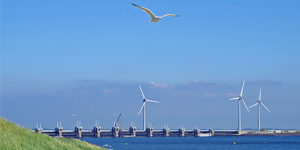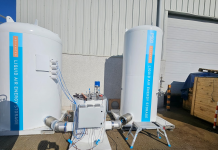 In the latest phase of the Technological Innovations and Climate Change inquiry, the Environmental Audit Committee (EAC) will consider the role of tidal energy in the UK’s low-carbon energy mix.
In the latest phase of the Technological Innovations and Climate Change inquiry, the Environmental Audit Committee (EAC) will consider the role of tidal energy in the UK’s low-carbon energy mix.
As the country with the largest marine renewable resources in Europe, and the second highest tidal range in the world, there is significant potential for tidal power generation in the UK. Tidal schemes could also offer a predictable and reliable energy source, providing benefits over other sources of renewable generation such as wind or solar.
However, the technology is at the early stages of development so has not been rolled out despite 80% of the UK public supporting tidal and wave deployment. The Government has undertaken numerous reviews into the potential for tidal range. When examining the possibility of a tidal lagoon fleet in 2017, the Government stated the tidal capital cost per unit of annual power output is higher than other energy sources.
The EAC will be examining these issues and more, considering whether tidal power could play a role in the UK’s commitment to be net-zero by 2050.
The Committee is inviting written submissions to inform its forthcoming session. These should focus on, but not be limited to:
- What contribution can forms of tidal power play towards the UK’s energy mix?
- Why, despite the considerable marine resources available, have relatively few developers established tidal projects?
- Are there certain locations where one type of tidal technology is best suited?
- How could financial support be structured to assist technological and project development in this area?
- How might tidal schemes reduce costs to become commercially competitive with other low carbon or renewable options?
- What are the environmental impacts of tidal schemes and how can these be minimised?
- What are the wider economic benefits and what potential disadvantages could tidal schemes bring to regional areas?




At last, tidal power is coming up the agenda. There are successful pilot projects that do not depend on lagoons – see those in Orkney and Rolls Royce are dabbling in tidal flow turbines. There are many places around the coast that have a fast tidal current.
Given that future costs of EU electricity supplies to the UK may become part of ongoing trade negotiations under the new Free Trade Agreement (not least fishing quotas in 2026), the government should now revisit tidal energy schemes such as the Swansea Lagoon and others that could have followed around the UK. Apart from all the well established advantages of tidal energy, these schemes provide much needed employment in South Wales, Northern England and Scotland in these economically depressed times.